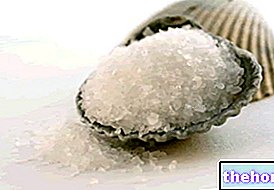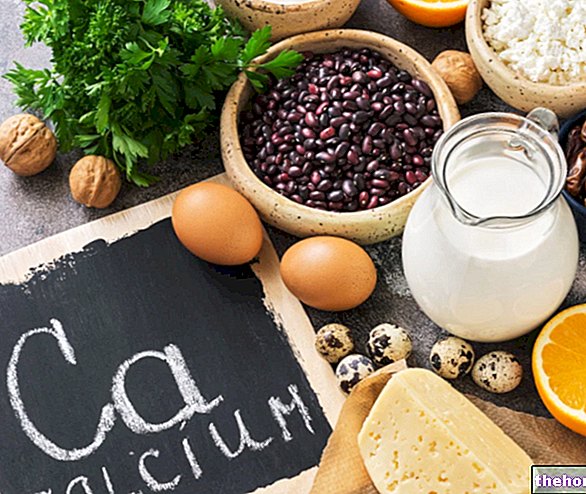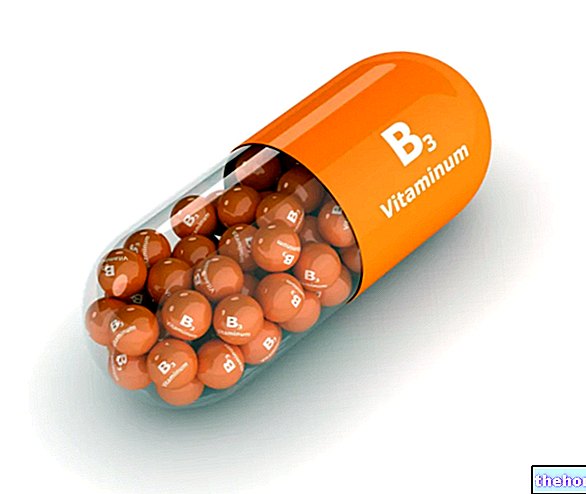Sodium
Sodium (as opposed to potassium) is the main EXTRAcellular cation. It is found in the body in quantities of about 92 grams, of which:
- 50% is located in the extracellular interstices
- about 12.5% in intracellular fluids
- about 37.5% inside the skeleton

Sodium is introduced through the diet in an almost continuous and scarcely selective way, since it is an ion widely diffused in food; moreover, it is highly absorbable, especially in the vicinity of the small intestine and colon.
The homeostatic maintenance of sodium (like that of other electrolytes) occurs mainly thanks to renal control; specifically, the mineral undergoes tubular reabsorption which is facilitated or inhibited (0.5-10% of oscillation) by hormonal regulation mainly mediated by aldosterone, an adrenal secretion hormone produced in the glomerular region of the cortical portion of the adrenal gland.
The only "inevitable" sodium losses are made up of faeces, sweat and mucus (the latter of marginal importance), but in the face of a "tendentially hypersodic diet, therefore very rich in sodium, these losses constitute only 7% about the daily intake (with the due differences in sports). In pregnancy and breastfeeding, taking into consideration the average nutritional habit of Italians, despite the increase in requirements, it does not seem necessary to supplement the quantity of dietary sodium.
Sodium deficiency
Sodium deficiency is extremely rare. It can be induced by low-sodium diets and / or by abnormal sweat losses and / or by kidney lesions and / or by chronic diarrhea; more frequently by the association of several factors. A severe sodium deficiency inevitably involves the alteration of nerve conductivity, of the acid-base balance and probably of the extra cellular oncotic pressure.
Excess sodium
On the other hand, the excess of sodium, albeit unlikely to be toxic, causes an increase in extracellular pressure with consequent retention of liquids as a reaction to maintain the natural extracellular chemical concentration; moreover, the possibility is not excluded that in the long term a similar condition may originate indiscriminate edematous syndromes of the interstices (water retention). At the same time, the excess of dietary sodium correlates positively with the incidence of arterial hypertension and the maturation of osteoporosis (see: salt, sodium and osteoporosis).
Sodium and hypertension
As already stated, the "excess of dietary sodium determines (especially in sensitive subjects) the onset of arterial hypertension. This" statement is amply justified and demonstrated by numerous population studies and clinical trials that highlight a direct and proportional correlation between the two factors.
Other variables that often accompany a bad diet positively influence the onset of hypertension; among these risk factors we remember obesity, hyperglycemia and diabetes, metabolic syndrome, poor quality dietary fats (too many saturated and few omega3), alcohol abuse, smoking, nutritional deficiency of potassium and magnesium, a sedentary lifestyle and psychological stress.
It should be noted that "hypertension is indeed a potentially worsening pathology, however, given the CONTINUITY" of the relationship between sodium and hypertension, it is also possible to state that dietary restriction from sodium can improve / decrease arterial blood pressure values in hypertensive subjects, but also in healthy subjects In light of this, it is evident that the complete abolition of added dietary sodium (NOT naturally contained in food) would also drastically reduce mortality from acute vascular disease.
Other articles on "Sodium: Deficiency, Excess and Hypertension"
- Cooking salt
- Salt, Sodium and Hypertension






.jpg)




















